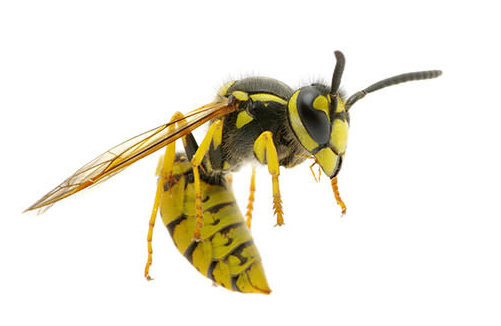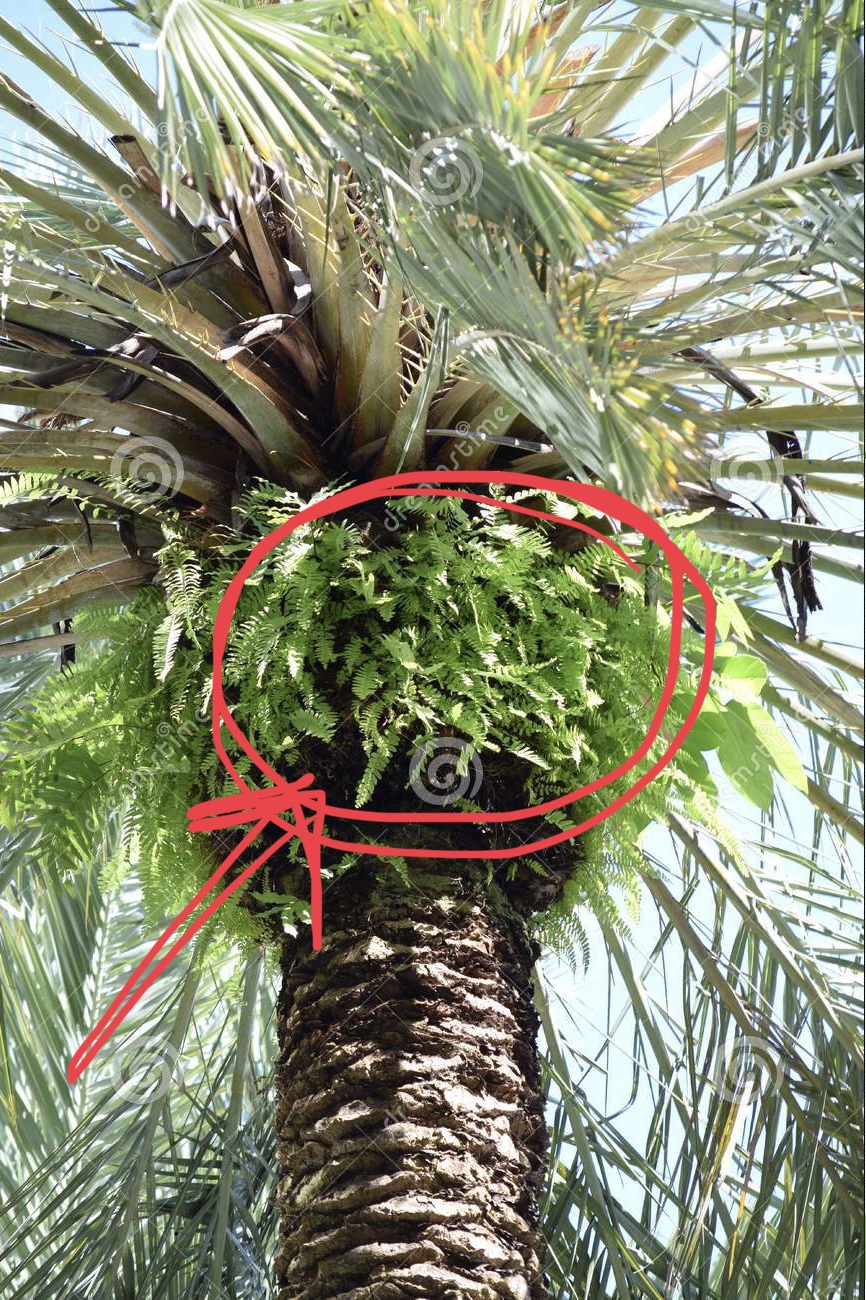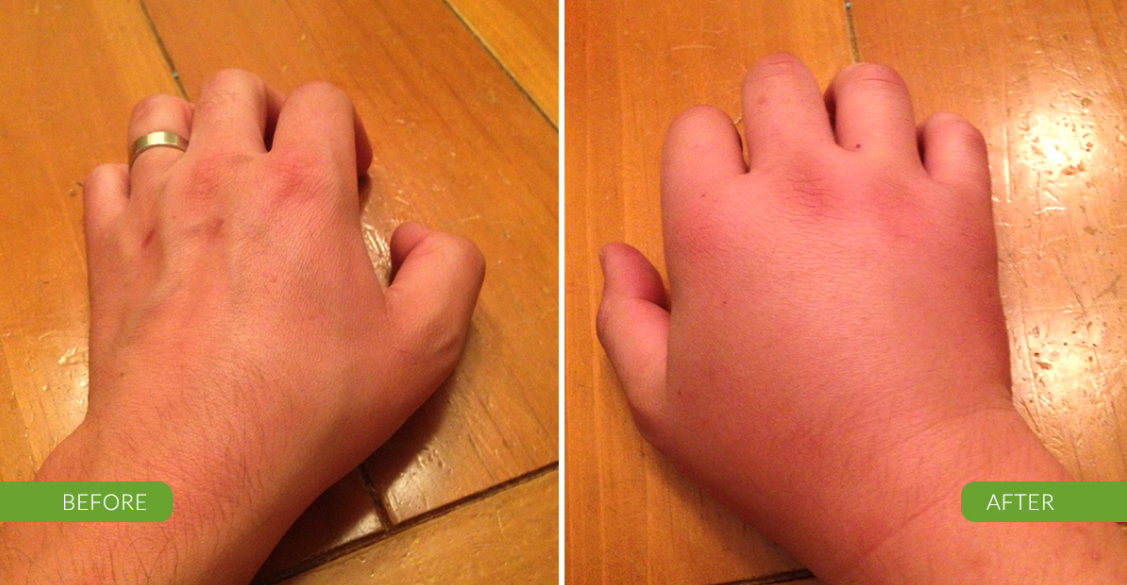Yellow Jacket Removal Experts In Palm Harbor, FL
Yellow jackets can be common in and around Palm Harbor and the Tampa Bay Area, especially in late Summer and Fall. Yellow jackets, also called ground hornets are extremely aggressive and should be handled by professionals.
Luckily, Dusty Showers of Creepy Creatures Termite and Pest in Palm Harbor LOVES dealing with yellow jackets!
Estimates and Consultations are always FREE-call or text today for our FREE 58 Point Pest Analysis 727-488-5657
Yellow Jacket Experts
Up North, yellow jackets tend to live in walls and ceilings of homes. In and and around Palm Harbor yellow jacket live in the ground and the ferns that surround the tops of date palm trees. Nest sizes vary from the size of a baseball to larger than a plastic kiddie pool…that is massive and deadly.
In fact, Dr. Philip Koehler of The Entomology and Nematology Department at University of Florida explains the possibly deadly effects of yellow jackets and hornets saying:
The stinger of yellowjackets is not barbed like the stinger on bees. For that reason, one yellowjacket worker can repeatedly sting a victim. A normal reaction to a sting involves only the immediate area of the sting and swelling appears in 2 to 3 minutes. It involves redness, itching, pain and formation of a wheal at the site. Usually the symptoms abate within two hours.
Yellowjackets can kill people in two ways: by sheer numbers of stings causing toxic effects and by the allergic reactions in sensitive individuals. It generally takes about 1,500 stings to kill an adult man by the toxic effects of the venom alone. As in the case of pesticide poisoning, children are more susceptible to the toxic venom because of their lower body weight. The child that recently died supposedly was stung 300 to 400 times. The toxic action of venom was described for a man who received over 2,000 stings. He had a severe headache, vomiting, diarrhea, and shock.
For allergic people, one sting can be deadly. In fact, a severe allergic reaction can result in death within 15 to 20 minutes although 20 to 30 minutes is more common. Severe reactions start with local pain and itching that eventually becomes widespread skin irritation. The victim feels a constriction in his throat and chest and breathing becomes difficult. A study of 641 deaths due to yellow jackets, bees, and wasps reported respiratory congestion accounted for 53% of the deaths…

Whether your yellow jackets are in the ground or your yellow jackets are in a palm tree, you want to be very careful. We must caution when you practice “Do it yourself yellow jacket control”. Yes, you may be successful however, if things go bad…and even with professionals things can go bad…they can go really bad. If you are attempting to kill or remove a yellow jacket nest and things go bad, you cannot simply walk away. It is rare to just get stung once when killing yellow jackets. When these hornets get mad, they release a pheromone that will tell all of the other hornets to attack. You may even try to wrap yourself up in a makeshift bee suit but even then, you must use caution. Yellow jackets can sting through most bee suits including many types of leather gloves. When yellow jackets attach, they attack in VERY high numbers and they will seek out ANY breach in your “suit”. Any possible opening must be sealed tight and if you are “hoping you sealed everything”, yellow jackets will show you what you missed and there is nothing like have yellow jackets trapped inside your bee suit, especially around your face inside your head protection.
Ready to call a Pro? Consultations and Estimates are FREE! Call or Text today 727-488-5657.

How To Kill Yellow Jackets
Another tip for “do it yourself yellow jacket removal”, if you wear a bee suit, you MUST keep the head screen away from your face or head. If you brush up against something or if the face screen comes into contact with your face, yellow jackets will immediately sting that spot.
As mentioned earlier, when treating a yellow jacket nest, if things go bad you cannot just walk away. They will follow you. They will follow you for two blocks or more and there will always be hanger-on-ers that will continue to follow you. Don’t forget, yellow jackets can sting multiple times. Unlike bees that can just sting once, yellow jackets will happily sting you over and over and over.
Other mistake “do it yourselfers” make is they park close to the nest being treated or they try to kill a nest near a sidewalk or other areas with people…which is a recipe for disaster. If you park near the nest, don’t plan on getting in your vehicle for sometime and you may open yourself up to lawsuits if someone is stung because you stirred up nest.
Yellow jacket stings are nasty. I would rather get stung by bees all day long than yellow jackets. And it is worse when on an extremity like hands or legs that sit below your heart…the wound will pound and pound all night long.
Yellow Jackets are dangerous and can be deadly; why take the chance?

Creepy Creatures Termite And Pest Control are experts in bee and yellow jacket removal. Please consider hiring a professional.
Our bee and yellow jacket work is always Guaranteed 100% and estimates are always FREE. Call or Text today for your free estimate and consultation 727-488-5657
